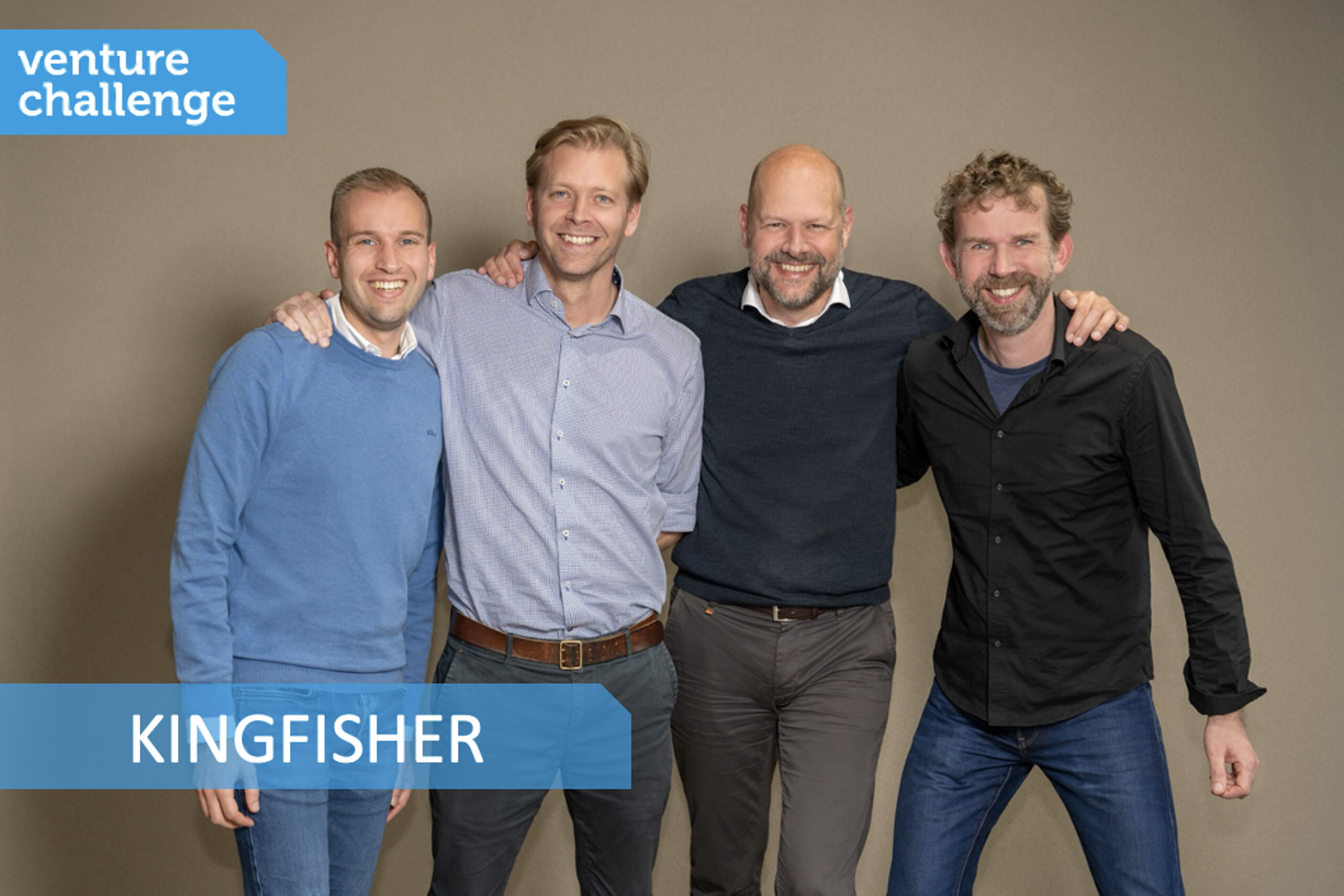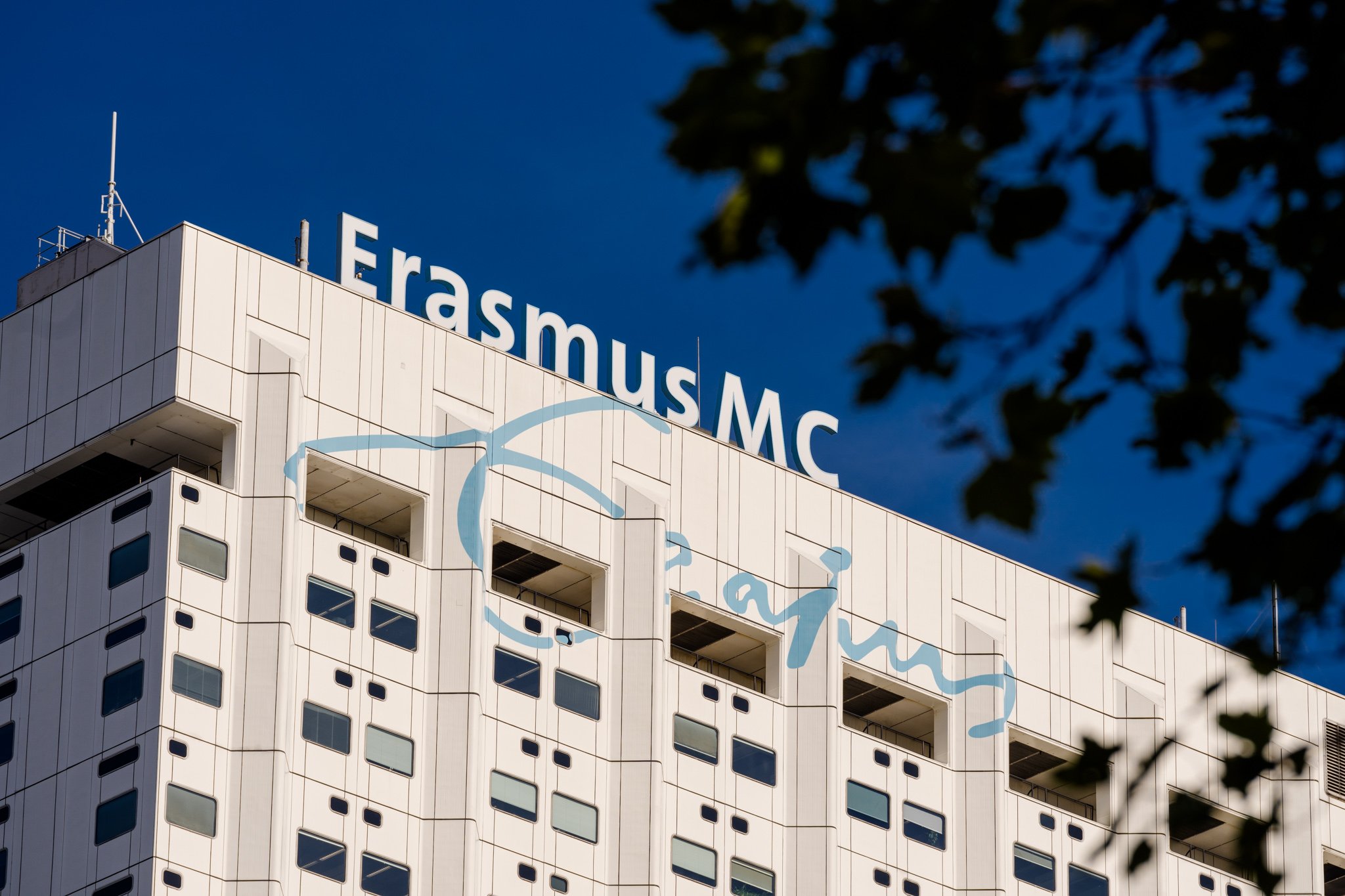Two Erasmus MC spin-offs participate in Venture Challenge Fall 2024
Six teams have started the Venture Challenge Fall 2024, of which two are spin-offs from Erasmus MC and the Erasmus MC Technology Transfer Office. These starting Life Sciences entrepreneurs will learn everything about building and pitching a business plan, and get a huge boost to take their idea to the next level. Not only does the Venture Challenge provide one-on-one coaching, the teams will also get the chance to pitch to investors and get in touch with seasoned entrepreneurs. Take a look at the two Erasmus MC spin-offs showcased below, where cutting-edge scientific research is being transformed into market-ready products.
Kingfisher: Taking the guess work out of coronary stent placement

From left to right: Hugo Stegman, Jeroen Wilschut, Willem Mees van der Bijl, Wilfred Teunissen
Coronary artery disease is widespread. Since Andreas Grüntzig introduced percutaneous coronary interventions (PCI) in 1977, the number of PCI procedures and technological advancements has grown rapidly. While PCI to treat blockages near the coronary artery’s origin is a routine part of clinical practice, it remains technically challenging. To address this, Erasmus MC has developed a stand-alone device that ensures precise stent placement at the coronary ostium. This innovation reduces the need for additional stents, lowers the risk of complications for patients, and decreases healthcare costs and system burdens.
RADIGENE: Reporter gene technology for radionuclide imaging of gene and cell therapies

From left to right: Felipe Gama Franceschi, Cas Kranenburg, Laura Mezzanotte, Syjar Kisin
Radigene delivers an imaging solution for monitoring cell and gene therapies from preclinical phase to early developmental phase in patients, so that effective monitoring of cells reaching the target and eventual early toxicities can be tracked. There are not many specific imaging platforms available while the need is high, given the rapid expansion of the number of these therapies entering clinical phase and their potential side effects. It is estimated that 9 out of 10 patients develop side effects and identification of early risks is crucial for rapid response.
Radigene is qualified to solve this unmet need because its proprietary technology allows to tag and track cells and vectors using radionuclide imaging, which is a sensitive imaging technique used in the clinic for cancer patients. The team of Radigene has experience in business creation and the scientific and technological know-how for the development of biotechnological products. Since the technology has been validated in proof-of-concept experimental models, Radigene team would like to define its business model and develop a range of products that can reach the market.
The Venture Challenge is an initiative from LifeSciences@Work, powered by Health~Holland. The winner will be announced at the Dutch Life Sciences Conference on December 12. If you would like to know more about all six teams participating in this edition of the Venture Challenge, please click here.
Date: November 21, 2024
Source: LifeSciences@Work




